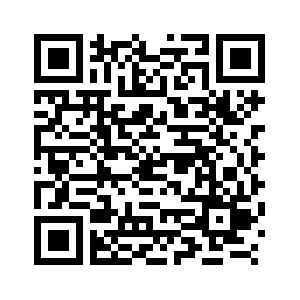BAGHDAD, Dec. 27 (Xinhua) -- U.S. President Donald Trump made a surprise visit to Iraq, igniting resentment among Iraqi political blocs despite an Iraqi prime minister's statement that Baghdad had been informed about the visit.
Trump, accompanied by his wife Melania, landed at the al-Assad air base in Iraq's western province of Anbar on Wednesday night, in a move to celebrate Christmas with U.S. soldiers in Iraq.
The U.S. White House Press Secretary Sarah Sanders said on its Twitter account that "Trump and the First Lady traveled to Iraq late on Christmas night to visit our troops and senior military leadership to thank them for their service, their success, and their sacrifice and to wish them a Merry Christmas."
Trump spoke to a group of U.S. soldiers and separately with military leaders before leaving a few hours later.
The state-run Iraqiya channel briefly said that Trump "denied any plans to withdraw U.S. troops from Iraq."
As for his decision to withdraw U.S. troops from neighboring Syria, Trump said that "a lot of people are going to come around to my way of thinking," according to the channel.
A statement by Iraqi Prime Minister Adel Abdul Mahdi said that the U.S. authorities had informed the Iraqi authorities about Trump's desire to visit Iraq on Dec. 26 to congratulate the new (formation of) Iraqi government and to visit the U.S. military within the coalition forces supporting Iraq in the fight against the Islamic State (IS) group.
The statement said that Abdul Mahdi made a phone call with Trump and "talked about the development of situations, especially after the U.S. president's decision to withdraw troops from Syria."
Sabah al-Sheikh, an Iraqi political expert, told Xinhua that Trump's surprise visit made a lot of trouble to Abdul Mahdi who has already been accused by some political blocs of being weak and plunged in the chaos of forming his cabinet after two months of taking his post.
"Abdul Mahdi's reaction in his statement about Trump's visit was not convincing to many political parties and the public, because the surprise visit of Trump is a clear violation of Iraqi sovereignty," al-Sheikh said.
"This is not the first time that an American president has entered Iraq surprisingly. We have seen George Bush visited Iraq three times in 2006, 2007 and 2008, while Barack Obama paid a surprise visit to Iraq in 2009," al-Sheikh said.
Al-Sheikh predicted that the crisis of Trump's visit in Iraq will develop more.
"I believe that this visit will push some of the political blocs in the parliament to further press to enact a draft law to expel the U.S. forces from our territories as long as there is no need for them because the Iraqi forces are capable of defeating IS," al-Sheikh added.
However, al-Sheikh sees that Trump will insist to keep his troops in Iraq after his earlier decision to withdraw U.S. troops from neighboring Syria following the defeat of IS militants in eastern Syria.
"The U.S. troops need to stay in Iraq and need proxy forces to fight for them inside Syria. This is vital for the Americans to continue monitoring the Iranian influence and the movement of its Shite militias in both countries," al-Sheikh said.
Early on Thursday, the Binaa (Building) Coalition, headed by Shiite militia leader Hadi al-Ameri, condemned the visit a few hours after the announcement of Trump's arrival.
"Trump's visit is a blatant violation of the diplomatic norms and shows his disdain and hostility when dealing with the government of Iraq. This is unacceptable," a Binaa's statement said.
The leading Shiite coalition called on the Iraqi government to "reject this visit, inform the United Nations and summon the U.S. ambassador in Baghdad quickly," the statement said.
The Binaa Coalition also called on "all political parties to unite in the demand for national sovereignty and put an end to the U.S. military presence on Iraqi soil," it added.
For his part, Sabah al-Sa'idi, head of the Islah and E'imar (Reform and Construction), the largest parliamentary political bloc that includes Sairoon Coalition, called on the parliament to hold an emergency session to discuss Trump's "disrespect for Iraq's sovereignty."
"Holding an emergency session of the Council of Representatives (parliament) is imperative to discuss this blatant violation of the sovereignty of Iraq and to stop these acts of agitation by Trump, who must know his limits, because the U.S. occupation of Iraq is over," said al-Sa'idi.
Former Prime Minister Haider al-Abadi also rejected Trump's visit to Iraq, saying that "dealing with Iraq and its sovereignty in this way will harm U.S.-Iraqi relations."
It is Trump's first visit to Iraq since he took office nearly two years ago.
Recently, Trump declared a plan to withdraw all U.S. troops from Syria, citing full defeat of IS militants in the country.
The troops were part of a U.S.-led coalition which has been fighting and conducting airstrikes against IS targets in both Iraq and Syria.



